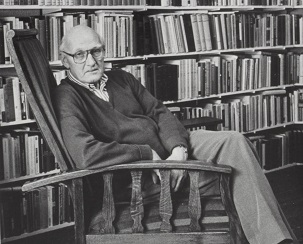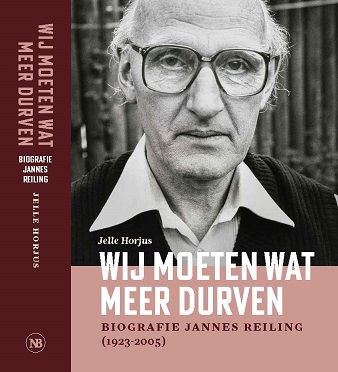Biography Jannes Reiling (1923-2005)

The theologian Jannes Reiling was the most important church leader of the Union of Baptist Churches in The Netherlands in the twentieth century. His significance lies in the contribution he made to the emancipation of this small Protestant denomination. Reiling regarded Dutch baptists as narrow-minded and outdated and wanted to open the windows for new ideas in order to bring them up to date. By greater social involvement, participation in interdenominational life and a broadening of the theological vision, he hoped baptists would become more relevant in society. He therefore led Dutch baptists in the direction of ecumenism, the university, female ordination and the acceptance of homosexual believers. Interestingly, this growing awareness and liberation in a religious sense was accompanied by a personal lifestyle that was also different and emancipated, in relation to the isolated baptist church life. For example, in the fifties Reiling appeared as a national expert in the ‘philosophy of camping’ and was even involved in a legislative process on the national level. In the seventies he became director of a psychiatric care institution and succesfully completed this task for twenty years. However, the emancipation that Reiling envisaged in his denomination succeeded only partially. In 1987 he was deposed as rector of the Dutch baptist seminary, the institution which he himself had set up thirty years before.
For a long time, research into emancipation movements has focused on the search for laws. The distance between the vanguard and the followers, the influence of social circumstances, the role of power structures, the distinction between a moment and a process of emancipation, all these elements were investigated and described in the 1960s and 1970s. Since the 1980s, attention has also been paid to the leading figures in emancipation movements. For example, the Dutch sociologist Hilda Verwey Jonker believed that the role of clergymen in church renewal movements had until then been underexposed. Her comments, however, mainly concerned the ordinary village pastor or parish priest. Only in the late nineties more attention was drawn to individual bishops and leading theologians. From that moment, Dutch sociologists focused on the large established churches in The Netherlands and to a much lesser extent on smaller church denominations like the Dutch Baptist Convention. This biography will therefore try to show that the same processes and mechanisms also took place on an individual level in a smaller Protestant church context such as the Union of Baptist Churches.
However, my biographical research should not only benefit from the work of Verwey Jonker, but also from more sophisticated theories that address specific aspects of emancipation. The publications of Janse, Koers and Van Deursen show that aspects of religious emancipation (attention to the environmental issue, ecumenism, gay marriage and women in ministry) are not available separately, but belong to a single off-the-shelf package which cannot be reconciled with ‘Classic Christianity’. Van Deursen shows for example, that political idealism among christians – whether the anti-nuclear position or care for the environment – was always limited to a small group in Dutch village life. According to him, these liberal ideas mainly appealed to christians who sought change in the church. It will be interesting to see whether the vanguard of the baptists, led by Reiling, also gave an account of this mechanism.
This biography intends to contribute primarily to the knowledge domain of the Union of Baptist churches in the Netherlands. This small Protestant denomination is generally not in the spotlights, but holds an interesting middle position between the established churches and the unorganized Christian groups. As we shall see, the rise of the evangelical movement can be described from the history of the Baptist Movement as well as from the development of modernization and secularization in the major churches.
The knowledge domain of the history of Dutch forensic psychiatry can also benefit from this dissertation. Apart from a few biographical sketches, the biographical method has not yet been sufficiently used for the historiography of forensic psychiatry. In addition, this dissertation can make a small contribution to the domain of scientific or university history. Because Jannes Reiling was active in the administrative body of Utrecht University, we gain more insight into the work that was done behind the scenes. Consideration should be given here to mutual relationships, policy on appointments, the content, form and quality of education, school formation and social contacts.
Finally, this research also contributes to the history of Dutch secularization and the breakdown of traditional religious life. The life stories of the liberal theologians, forerunners of the secularized churches, nuance, deepen, confirm or contradict the major axioms. Life stories make it possible to see how the small revolutions manifest themselves in the lives of special people. It also makes it possible to determine what those people have contributed to these changes.

Jelle Horjus (1977) studied theology at Utrecht University and at the Seminary of the Union of Baptist Churches in The Netherlands. His research was supervised by prof.dr. Hans Renders en prof.dr. Yme Kuiper.
The biography Wij moeten wat meer durven. Jannes Reiling (1923-2005) was the thesis of a PhD-defense on November 30, 2023, 12:45 PM. A trade edition was published at Uitgeverij Noordboek.
Reviews were published in
